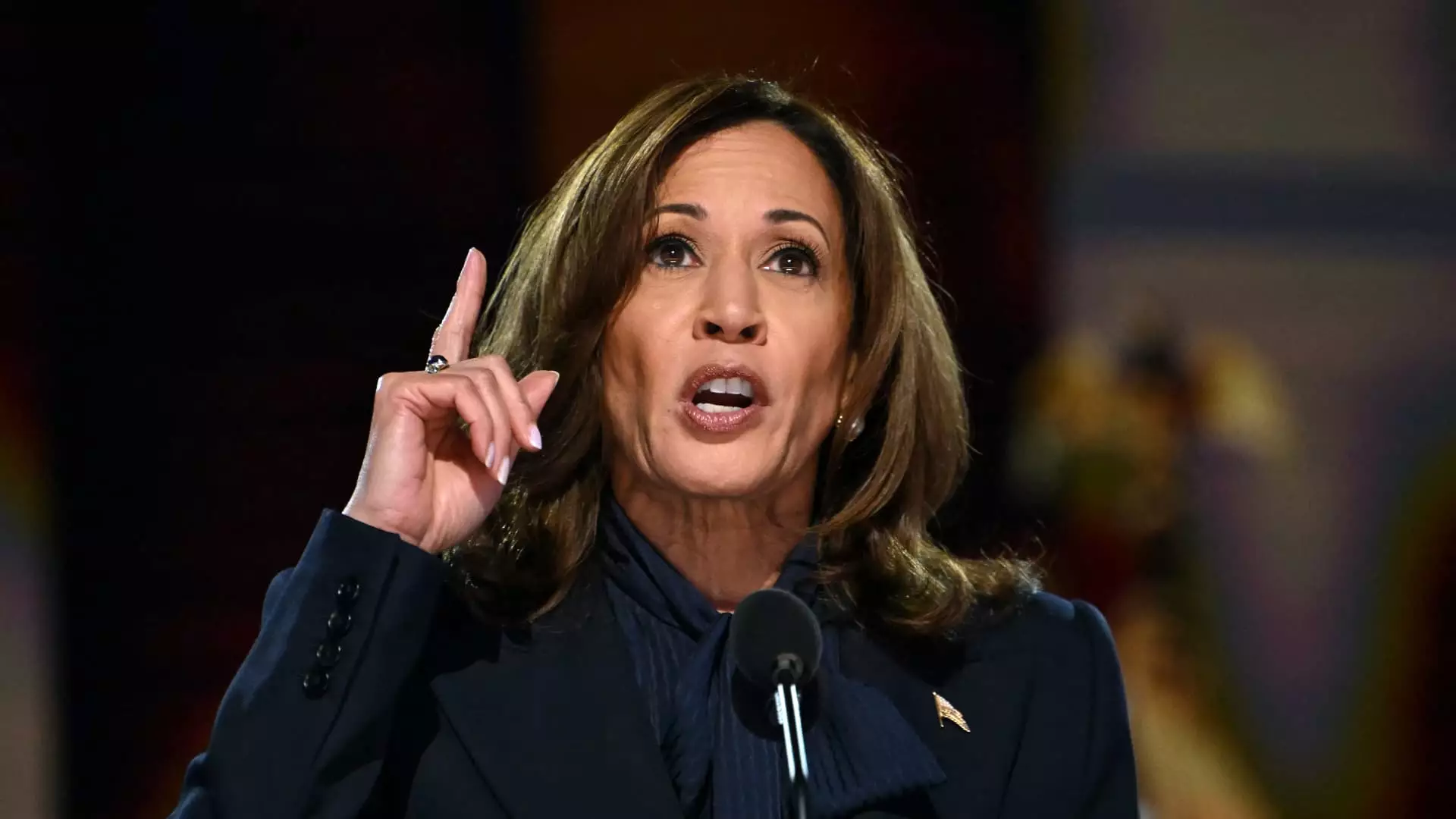In the face of the upcoming election cycle, there emerges a palpable urgency in the political discourse surrounding the candidates vying for the presidency. Vice President Kamala Harris has brought to light a chilling characterization of her Republican opponent, Donald Trump, labeling him as someone who “wants to be an autocrat.” This framing reflects not only the immediate stakes of the election but also a broader narrative about the essence of American values and leadership. Harris emphasizes a stark contrast between defending democratic ideals and succumbing to authoritarian influences, a theme that resonates deeply in contemporary political discourse.
Harris’s remark, claiming that Trump is easily manipulable by foreign leaders such as Kim Jong-Un, underscores a critical concern: the vulnerability of American leadership to external pressures. Her assertion that autocrats thrive under Trump’s potential presidency is a call to action for voters who value accountability and integrity in leadership. This critique is not merely an attack; it is a bid to rally support for a return to steadfastness in international relations, where the U.S. stands firmly against tyranny and champions democratic values.
In response to Harris’s allegations, Trump took to social media, describing the Vice President as “weak and ineffective.” His quick rebuttal aims to establish a narrative of efficacy and strength, positioning himself as a stronger candidate against the backdrop of national security. Trump’s remarks illustrate a shift in discourse, where he attempts to recast narratives of vulnerability by drawing attention to his administration’s perceived strengths, particularly in relation to military power and national defense. This exchange highlights the high stakes at play; each candidate is vying not only for votes but for the very definition of American identity in the global arena.
The exchange reflects a battleground where language acts as a weapon, and the interpretation of strength versus weakness becomes subjective. This political theater raises an important question for voters: What does strong leadership truly entail? Is it the posture of defiance against foreign powers, or is it the commitment to democratic principles and the well-being of global allies?
The Democratic convention spotlighted voices from the military and intelligence community, who uniformly condemned Trump’s approach to national security. Figures like Rep. Elissa Slotkin, a former CIA analyst, articulated a vision of America that leads rather than retreats, framing the election as a critical choice between forging alliances and isolationism. Slotkin and her colleagues leverage their credentials to bolster the credibility of the argument that Trump poses a significant risk to American security through his admiration for dictators and disregard for established alliances.
Senator Mark Kelly’s commentary further solidifies this narrative. He describes Trump’s dismissal of military sacrifices as indicative of a broader disregard for the values that American servicemen and women uphold. Such statements prompt reflection on the psychological and moral implications of leadership. The underlying claim is that a leader’s engagement with military ideals determines their legitimacy as a commander-in-chief. It invites voters to scrutinize not just policy, but the ethical frameworks underpinning leadership choices.
Leon Panetta, a seasoned figure with extensive experience in defense and intelligence, warns against the dangers of isolationism, invoking historical precedents to stress the folly of abandoning allies. This perspective serves as a broader critique of Trump’s foreign policy approach and is a crucial reminder of the interconnectedness of global affairs. The implicit message is that America’s strength lies in collaboration, not in retreat. Through such historical lenses, Panetta articulates a vision of leadership that honors the sacrifices of veterans while advocating for a robust international presence.
The discourse surrounding this election heralds significant implications for America’s future role on the world stage. As Harris calls for vigilance against authoritarianism, it becomes essential to consider how these democratic values translate into actionable policies and voter choices. The looming election represents more than a contest of personalities; it symbolizes a pivotal moment in determining the trajectory of American democracy itself.
The current political climate underscores an existential question: What kind of leadership does America need? As the election approaches, voters are urged to consider the implications of their choices in a landscape riddled with fear, manipulation, and the potential erosion of democratic norms.


Leave a Reply